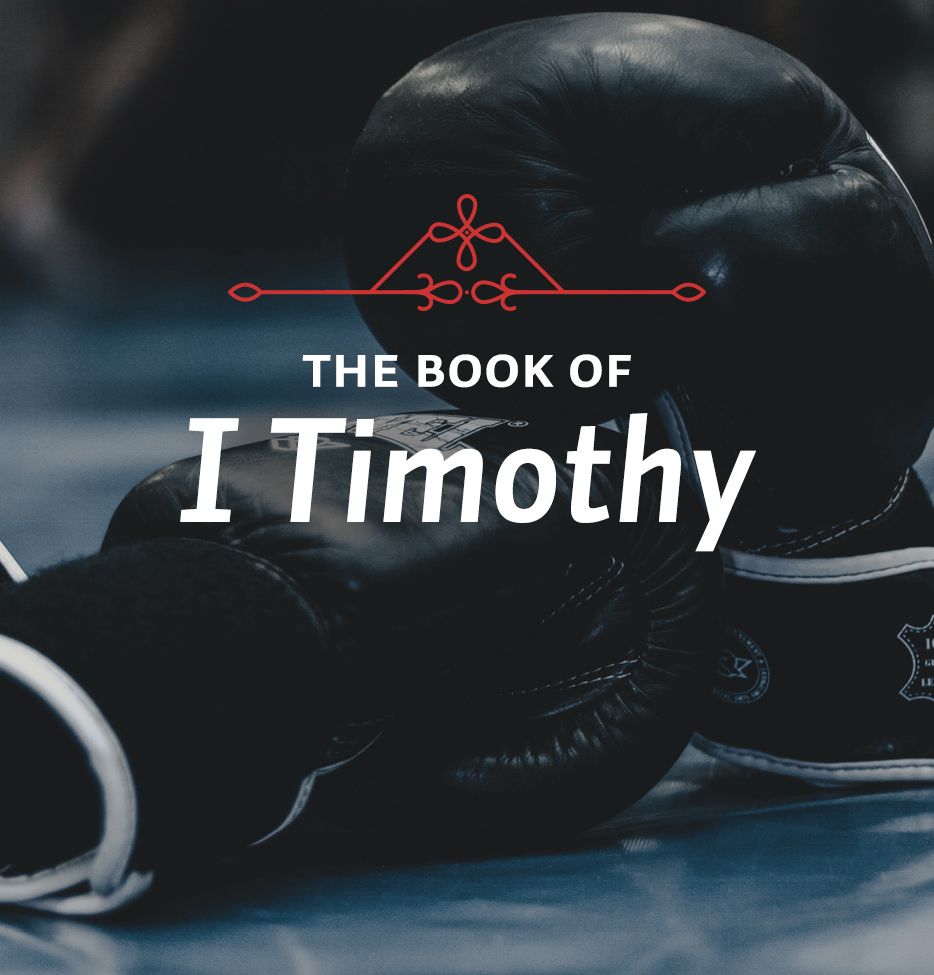Theme: Servant Leadership
In this week’s study, we look at the office of elder and deacon, and note the importance of Christian leadership, both in the church and in other callings we have received from God.
Scripture: 1 Timothy 3:1-13
As Paul is writing to Timothy, he encourages Timothy to seek out in the churches those who are able to assume the positions of responsibility in order that the work of God might go forward and not be hindered. And in our passage, he talks about elders and deacons—the two offices of leadership within the church. Speaking of the office of overseer, or elder, he says that anyone who desires to serve in this way pursues “a noble task.” The King James Version translates it as “a good work.” Paul commends those who want to serve as elders, and deacons as well. It is far better to aspire to leadership in the church than to leadership in politics or some other secular avenue of leadership, though God may give Christians the calling to do that as well. Poor is the church that doesn’t have a liberal sprinkling of those who can assume these positions of leadership.
He deals first with the task of overseer, and then, second, the task of deacon. But let me begin with this matter of the deaconate because in a certain way, it’s foundational to the other. It certainly is historically. In the early days of the church, when the deacons were first chosen and the office of deacon began, there were no elders in the church, as an actual office. What you had was the apostles who were functioning somewhat in the role of elders. Now they had other gifts, such as being able to perform miracles—which is not a requirement for being an elder. So while they were taking on in a sense the role of an elder, they were not called elders or overseers. It was later that men were elected to the eldership and carried out their responsibilities in the local churches wherever those churches were planted as the gospel took root.
So of the two offices, elder and deacon, it was actually that of deacon that was the first office that was formally established, with particular men being selected and then commissioned to this task. This is an important truth because the meaning of the word “deacon” is “service” or “servanthood.” Now elders are servants, too, but in a different way. And what is important to notice at this point is that the offices in the church are distinguished from most of those offices that prevail in the world by virtue of the fact that they are what we would call today servant leadership.
The best thing I have ever seen on the matter of the deaconate is by George Fuller, the head of the National Presbyterian and Reformed Fellowship. In the beginning of one article, he makes a contrast between the way in which the world measures greatness and the way God measures greatness. Isn’t it true that in the world, the way we measure greatness is by how many people wait upon you? One little way you can see this is when you travel in an airplane. One of the differences between first and second class is the service you receive from the attendants. You also can see this in the area of domestic servants today. If you have no servants—and very few people do today—you’re a normal person. If you have one servant, you’re somebody who’s rather important and well off. And if you have half a dozen, that really catches people’s attention if they know that. It says a lot about the status and means of the homeowner. In Fuller’s article, he talks about the Vanderbilts, who lived in this great mansion up along the Hudson River in New York State. He points out that in their later years, when they were very old, there were only Mr. and Mrs. Vanberbilt. Yet they had sixteen servants. When someone lives that high up the social ladder, we are impressed by that, and perhaps even think about how nice it would be if that were our situation as well.
But that is not the way Jesus Christ defined greatness. There were rich and influential people in his day as well, and yet he had different ideas about what constituted greatness. I think Christ’s most popular sermon was on this theme. Multiple times it is recorded in the Gospels that Christ preached on this theme that the one who would become great in the kingdom of God must become the servant of all. You see how our Lord thought? The Lord said exactly the opposite of what the world says. The world says the greater you are, the more servants you’ll have. And Jesus says the greater you are, the more people you will serve.
Study Questions:
What are the two offices in the church? Which one was established first, and why was it created?
Before the office of elder was established, who functioned as elders at the beginning?
What main characteristic distinguishes church leadership from secular demonstrations of leadership?
Application: How did Jesus define greatness? In what ways can you put Jesus’ understanding of greatness into practice?
For Further Study: Download for free and listen to Donald Barnhouse’s message, “Administration and Compassionate Care.” (Discount will be applied at checkout.)






